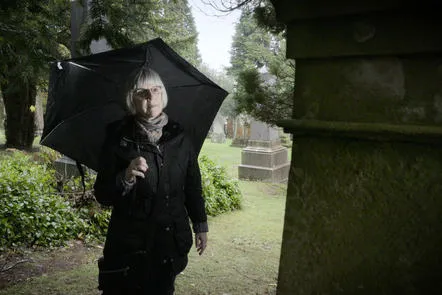
Online Genealogy Course: Research Your Family Tree - FutureLearn 
This online course from the University of Strathclyde, Glasgow, provides the tools and techniques to help you research and build your own family tree. Gain the knowledge to uncover your family's history and discover your roots. ▼
ADVERTISEMENT
Course Feature
![]() Cost:
Cost:
Free
![]() Provider:
Provider:
Futurelearn
![]() Certificate:
Certificate:
No Information
![]() Language:
Language:
English
![]() Start Date:
Start Date:
Self Paced
Course Overview
❗The content presented here is sourced directly from Futurelearn platform. For comprehensive course details, including enrollment information, simply click on the 'Go to class' link on our website.
Updated in [March 06th, 2023]
Have you ever been curious about your family history and wanted to build your own family tree? This 6-week genealogy course for beginners can help you get started. You'll learn the basics of genealogy, including how to find and analyze sources, different research strategies, and how to tackle genealogy databases and wildcards. The course covers a wide range of countries, so you can learn about your family lineage no matter where you're from.
You'll also explore DNA testing and the principles of genealogical inheritance, including how autosomal DNA testing helps genealogists and the basics of Y chromosome inheritance. The course will teach you how to establish proof according to the Genealogical Proof Standard, and how to record and document your research in order to preserve your family history for generations to come.
Throughout the course, you'll follow one woman's journey as she researches her own family tree and learns about her past. Additionally, you'll delve into local and general histories, use maps and photographs to bring your family history to life, and learn how to balance genealogical data with historical context. By the end of the course, you'll have gained a solid understanding of genealogy and have built your own family tree.
[Applications]
After completing this Online Genealogy Course, participants can apply their newfound knowledge to research their own family tree. They can use the resources and techniques learned in the course to trace their family history, uncover stories, and discover new relatives. Additionally, participants can use the skills they have acquired to help others in their own genealogical research.
[Career Paths]
1. Genealogist: Genealogists are responsible for researching and documenting family histories. They use a variety of sources, such as public records, census data, and other documents, to trace family lines and uncover stories. This job is growing in popularity as more people become interested in learning about their family history.
2. Archivist: Archivists are responsible for preserving and organizing historical documents and artifacts. They use their knowledge of genealogy to help identify and classify documents, and to ensure that they are properly stored and preserved. This job is becoming increasingly important as more people seek to preserve their family histories.
3. Family Historian: Family historians are responsible for researching and writing about family histories. They use their knowledge of genealogy to uncover stories and create detailed accounts of family histories. This job is becoming increasingly popular as more people seek to learn about their family histories.
4. Genealogy Software Developer: Genealogy software developers are responsible for creating software programs that help people research and document their family histories. This job is becoming increasingly important as more people seek to use technology to help them uncover their family histories.
[Education Paths]
1. Bachelor of Arts in History: This degree path focuses on the study of the past, including the history of families and communities. It provides a comprehensive understanding of the development of societies and cultures, and the ability to analyze and interpret historical documents. This degree is becoming increasingly popular as more people are interested in researching their family history.
2. Master of Science in Genealogy: This degree path focuses on the study of genealogy and family history. It provides a comprehensive understanding of the methods and techniques used to research and document family histories, as well as the ability to analyze and interpret genealogical records. This degree is becoming increasingly popular as more people are interested in researching their family history.
3. Bachelor of Science in Information Technology: This degree path focuses on the use of technology to research and document family histories. It provides a comprehensive understanding of the tools and techniques used to research and document family histories, as well as the ability to analyze and interpret genealogical records. This degree is becoming increasingly popular as more people are interested in researching their family history.
4. Master of Arts in Library Science: This degree path focuses on the use of library resources to research and document family histories. It provides a comprehensive understanding of the tools and techniques used to research and document family histories, as well as the ability to analyze and interpret genealogical records. This degree is becoming increasingly popular as more people are interested in researching their family history.
Course Provider

Provider Futurelearn's Stats at AZClass
Discussion and Reviews
0.0 (Based on 0 reviews)
Explore Similar Online Courses

Water and Wastewater Treatment

Free Google Analytics Tutorial - Google Analytics: Treinamento Expresso (em menos de 30 min)

Python for Informatics: Exploring Information

Social Network Analysis

Introduction to Systematic Review and Meta-Analysis

The Analytics Edge

DCO042 - Python For Informatics

Causal Diagrams: Draw Your Assumptions Before Your Conclusions

Whole genome sequencing of bacterial genomes - tools and applications

Curanderismo: Traditional Healing Using Plants

Storytelling in Branding and Content Marketing


Start your review of Online Genealogy Course: Research Your Family Tree - FutureLearn